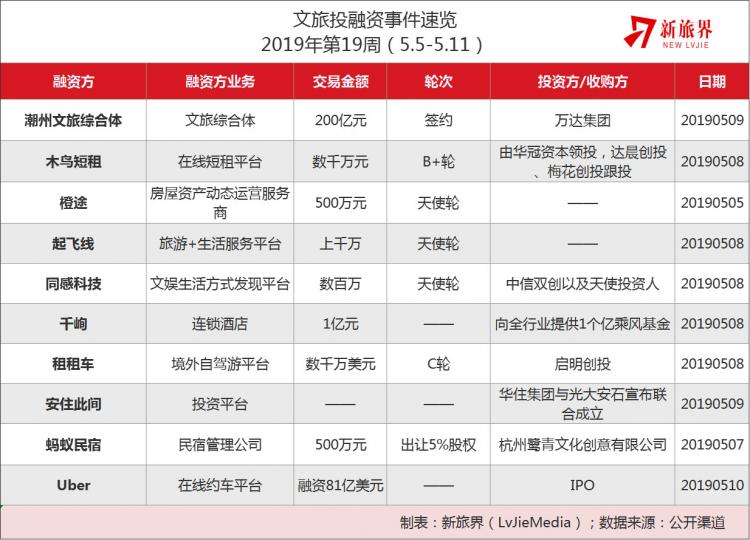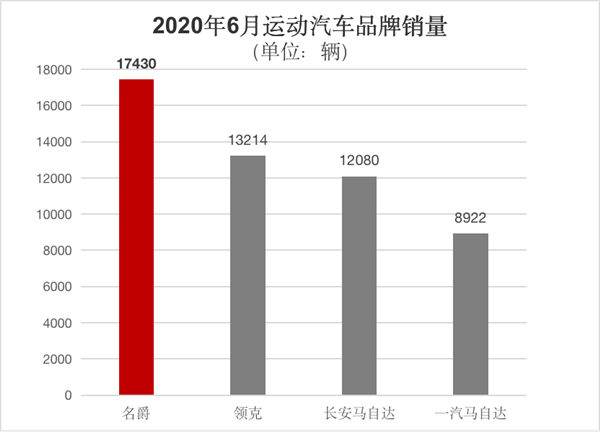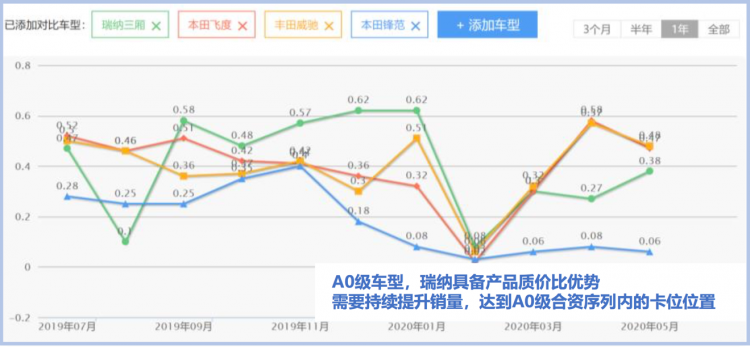
Development and operation of cultural tourism resources
1. Wanda Group will invest 20 billion to build a large-scale cultural and tourism project in Chaozhou
On May 9, Wanda Group and the Chaozhou Municipal Government signed a comprehensive strategic cooperation agreement to carry out all-round cooperation in the fields of culture and tourism, sports, film and television, exhibitions, and performing arts. The municipal government will jointly create a new city brand of Chaozhou. The “one project” of the “five ones” is to invest 20 billion yuan to build a large-scale cultural tourism project, which includes a characteristic cultural block, a children’s playground, an e-sports music park, a sailing paradise, a resort hotel group, etc., to create a world trendy person cultural Center. The other four ones are an event, a competition, a program, and a film and television drama.
Viewpoint of New Travel Industry Research Institute: Chaozhou is an “Excellent Tourist City in China” with profound historical heritage, distinctive cultural features, and numerous cultural relics and cultural landscapes. However, the current tourism products are mainly sightseeing, which is difficult to meet the market demand of consumption upgrading and diversification. At the same time, Chaozhou is a famous hometown of overseas Chinese. There are about 2.3 million Chaozhou overseas Chinese and compatriots from Hong Kong, Macao and Taiwan living overseas. Chaozhou is also adjacent to the economically prosperous Pearl River Delta region and the Guangdong-Hong Kong-Macao Greater Bay Area, and has a huge source of tourists. From the perspective of market supply and demand, Wanda’s cultural tourism complex project layout is at the right time.
Among the “five ones” projects signed this time, the large-scale cultural and tourism complex project is an asset-heavy investment, occupying the main body of investment, and the “four ones” are asset-light projects, which can play a role in branding the operation of asset-heavy projects and drainage effects. This mode of combining light and heavy and large-scale group development shows Wanda Group’s new thinking and new model in the layout of cultural tourism projects. At the same time, it can be seen that the “five ones” project better embodies the development idea of ”promoting culture with tourism and promoting tourism with culture”. After the “stock and debt double kill” crisis eased, Wanda Group once again frequently deployed the cultural tourism industry, reflecting its firm determination to develop the cultural tourism industry. Judging from the planning of existing projects, its development model is also leading to a certain extent. The influence of Wanda Group in the cultural tourism industry cannot be ignored.
Cultural tourism distribution and service
2. The travel + life service platform “Take Off Line” received tens of millions of angel financing
On May 7, Chongqing Qiqixian Information Technology Co., Ltd. (hereinafter referred to as “Qiqixian”) announced that it has completed tens of millions of yuan in angel round financing. The funds will be mainly used for team building, market expansion and iterative improvement of platform technology. It is reported that the take-off line has formed a set of business models that can closely connect travel route suppliers, offline merchants and users at the same time, with rewards as the core. This model can help travel route suppliers consume inventory, increase customer sources for merchants to stimulate consumption, and provide users with more cost-effective travel services.
New Travel Industry Research Institute’s point of view : Qiqiline was established in January 2019 and is an emerging platform company serving “tourism + life services”. Its advantages are mainly reflected in three aspects: First, its core team members are all from the Internet industry. The founder and CEO Tan Chun has many years of experience in market development and management in the field of life services, and has continuous entrepreneurial experience in emerging start-up companies , has unique insights into the future development of the Internet industry and the competitive landscape of the sinking market; second, the advanced concept and model, and the business logic of the take-off line are all centered on the point pass built in the APP. Users consume at the take-off line alliance merchants, The alliance merchants present rewards to users, users exchange travel routes through rewards + cash, and travel suppliers provide travel services to users. Through this model, users, travel suppliers and merchants are closely connected to achieve a win-win situation for the three parties; third, the unique marketing model, the take-off line team has formulated a local push partner and maker plan, and the local push partner is responsible for recruiting Offline merchants and makers recruit self-media or communities with traffic resources, and use the thinking of sharing economy and fission communication to achieve the purpose of rapid promotion.
For a long time, tourism travel and living consumption have been two relatively isolated markets. Tourism travel is relatively low-frequency, but living consumption is relatively high-frequency. Linking low-frequency tourism consumption with high-frequency life services, and using life services to attract tourism consumption is the innovation of the business model of Qiqiline. However, this business model has no technical and resource barriers. Once more competitors flood in, the market will quickly become a red sea. It remains to be seen whether the take-off line can seize the current market opportunity, quickly grow bigger and stronger, and form a scale advantage to establish a competitive advantage.
3. Overseas self-driving travel platform “rent a car” received tens of millions of US dollars in round C financing
On May 8, the overseas self-driving travel platform “rent a car” announced that it has completed tens of millions of US dollars in Series C financing, and the investor is Qiming Venture Partners. This round of financing will be mainly used to strengthen research and development, develop overseas markets, establish global branches, and match multi-language/multi-time zone/multi-country configurations.
Rent a car takes “car rental” as an entry point and builds an outbound self-driving travel platform serving global users. In the early days of the company’s establishment, it mainly provided users with driver’s license, navigation, language and insurance services required in the car rental process; since 2016, the destination business has been launched, providing services such as scenic spot tickets, hotels and catering; in 2017, the service was launched Overseas version for global users. In the ranking of SimilarWeb’s car rental category in February 2019, the overseas edition of Rent a Car ranked in the top 20.
New Travel Research Institute’s point of view : According to relevant data, the number of private cars in China has reached 200 million, while the number of drivers’ licenses has reached 400 million. The market capacity of self-driving tours will reach trillions in 2020. With the continuous growth of the outbound travel market, the overseas self-driving travel market will also maintain continuous growth; at the same time, the self-driving travel group has strong spending power and a high unit price.
It can be said that this is a segmented track with great potential.
The rent-a-car platform was launched in 2011, and it has been developed for 8 years. From the perspective of its development history, its business promotion is also relatively stable. First, develop and consolidate the core business of overseas car rental; then expand the service to the destination business, extend the service chain, and increase the diversification of business; at the current stage, focus on promoting the business and service internationalization, integrate global supply chain resources, and strive to become a leading enterprise in the global market. Corresponding to the business development, the financing rhythm of renting a car is also well grasped. According to available information, renting a car has completed 6 rounds of financing since its launch, with the financing amount ranging from 10 million yuan to 100 million yuan. There are hundreds of millions of RMB.
At present, the development of my country’s tourism industry, especially the channels and service-side services, has become more and more platform-based and international. At the same time, venture capital and industrial capital in the cultural and tourism industry are also paying more and more attention to the overseas consumption of Chinese tourists and the consumption upgrade in emerging markets. In the future, the development of China’s tourism industry will become more internationalized, and more Chinese enterprises and industrial capital will participate in international competition.
Cultural tourism capital market
4. Huazhu and Everbright Ashmore jointly established an investment platform “Anzhuhere”
On May 9th, Huazhu Group (Nasdaq: HTHT) and Everbright Ashmore announced the joint establishment of a new investment platform, Anzhuhe, and jointly initiated the establishment of a pan-residential real estate investment fund, which will invest in hotels and apartments in China. Class real estate industry. In the second half of this year, the platform’s first project, Shanghai Pudong Mingyue Project, will be completed and launched on the market.
New Tourism Research Institute’s point of view : Huazhu Group is a leading hotel management company in China. It was founded in 2005 and currently operates more than 4,000 hotels in more than 400 cities across the country. It has more than 80,000 employees and operates many well-known Hotel brands, covering high-end to affordable markets, including Grand Mercure, Xiyue, Huajiantang, Novotel, Mercure, Manxin, Jiji, Orange Crystal, Orange Select, CitiGO, Starway, Ibis Styles, Ibis , Hanting Youjia, Hanting, Elan, Haiyou, etc. Huazhu Club, the membership platform of Huazhu Group, has 130 million members.
Everbright Ashmore is a cross-border real estate asset management company and a Chinese real estate private equity investment fund. After more than ten years of development, Everbright Ashmore has formed a portfolio including equity investment, structured investment and financing, cross-border asset management, and real estate securitization. Multiple mature product lines, including project mergers and acquisitions integration, active development management, cross-border capital market investment, innovative financing and other multi-channel product investment. As of the end of December 2018, the cumulative management scale of Everbright Ashmore has exceeded 103 billion yuan, and it has successfully withdrawn 56 billion yuan of investment and more than 100 projects, achieving a good return on investment.
It is understood that Anzhu will adopt a fund model to hold assets through property acquisition first, then reposition and upgrade the property, and then improve profitability and property value through Huazhu’s brand output and efficient operation. Judging from this statement, Anzhu will integrate Huazhu’s hotel operation and management capabilities and Everbright Anshi’s investment management capabilities to find high-quality and low-cost properties, and then carry out hotel-like transformation and operation, empowered by capital and management, both Consider operating income and also look for property appreciation.
The market assumption for the establishment of this model is that the mid-to-high-end hotel market still has a large room for improvement in operation and management efficiency, and at the same time, the appreciation space of hotel properties is greater than that of other property categories. Judging from the current development of the domestic business travel market and the development level of the hotel industry, this assumption is basically valid, but it is still difficult to judge the profit margin. The New Travel Industry Research Institute will continue to pay attention to the future investment income of living here.
5. Global shared travel platform Uber goes public, raising $8.1 billion
On the evening of May 10, the ride-sharing platform company Uber (NYSE: UBER ) was officially listed on the New York Stock Exchange with an issue price of US$45. According to this calculation, the market value of Uber after fully diluted shares will reach US$82.4 billion. Uber issued a total of 180 million common shares and raised US$8.1 billion in the listing, which was smaller than the previously expected maximum financing of US$10 billion, but it was still the largest IPO in the US stock market after Alibaba in 2014.
New Travel Industry Research Institute’s point of view : Uber was founded in 2009, exactly 10 years ago. Similar to Airbnb, Uber is a representative company of the sharing economy model. In the 10 years of its development, although it has experienced many twists and turns and encountered many opposing voices, it has still been widely recognized by global consumers and top investors. It has not only received huge investment, but also expanded its business to the world. Scope, and spawned countless start-up companies with similar models, some regional companies have also grown into regional and even international platform companies.
Taking the IPO as a node, the first half of Uber’s great journey has been recorded in history, and what will happen in the second half is now the focus of attention of global investors and market research institutions. Judging from the performance of the secondary market that broke on the first day of its listing, its development prospects in the second half do not seem to be so optimistic.
Uber is an American company, but its market is global. Judging from the current U.S. economic policy, its trade frictions with various economies around the world will gradually expand. If the current U.S. foreign trade policy does not make adjustments, it will have a greater impact on the operations of its local multinational companies, especially It is a platform enterprise like Uber that relies on local resources to operate. In addition, Uber’s business model has been widely replicated. In the Chinese market, it has been acquired by Didi, a leading local shared travel company. Other economies with relatively developed population and economy, such as India, European countries, Japan and South Korea, etc. , which also have their own platform companies, the market competition in the field of shared travel has become fierce.
Only limited to local markets such as North America or only limited to the field of travel, Uber seems to be unable to support its valuation and revenue requirements in the future. After listing, Uber may use its brand and traffic to seek business diversification, or even higher barriers to entry New Travel Industry Research Institute will continue to pay attention to the development of the technology research and development field, its future business model and capital return.




